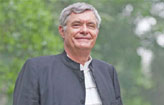Politics
Pakistani troops hunt militants on naval base
Updated: 2011-05-23 14:30
(Agencies)
KARACHI, Pakistan - Pakistani commandos backed by helicopters on Monday hunted down a group of heavily armed Taliban fighters who laid siege to a naval base in the country's largest city and sparked an hours-long clash that destroyed two US-supplied surveillance aircraft and killed at least seven people, officials said.
The Pakistani Taliban claimed responsibility for the attack, saying it was part of their revenge for the May 2 US raid that killed al-Qaida chief Osama bin Laden. The insurgents' ability to penetrate the facility further rattled a military establishment already humiliated by the unilateral American raid, and raised the possibility that the Taliban had inside help.
| ||||
He added that the militants were "not in possession of anything" when asked about reports of hostages being held.
The militants attacked the base from three sides and had control of one building as of Monday morning, Interior Minister Rehman Malik said. Navy helicopters were flying over the base in search of the attackers.
"Because of the presence of several assets on the base, the operation is being carried out in a cautious, smart way," Haq said, referring to military aircraft. "That's why it's taking so long."
The unilateral US raid on bin Laden's compound in the northwest Pakistani garrison city of Abbottabad has triggered a strong backlash here against Washington as well as rare domestic criticism of the armed forces for failing to detect or prevent the American operation. Pakistani leaders insist they had no idea the al-Qaida boss had been hiding in Abbottabad.
In claiming responsibility, Pakistani Taliban spokesman Ahsanullah Ahsan said the attack was part of their planned response to the death of the al-Qaida chief, and that Pakistan is the top target. The Pakistani Taliban hate the government in Islamabad because of its alliance with the US and because, under American prodding, the Pakistani army has staged offensives aimed at its insurgents.
This is the third major attack the group has claimed since the bin Laden killing, including a car bombing that slightly injured American consulate workers in the northwest city of Peshawar and a twin-suicide attack that killed around 90 Pakistani paramilitary police recruits.
Sunday's raid appeared to be the most serious against the military since October 2009, when militants attacked the army headquarters close to the capital, Islamabad. They held dozens hostage in a 22-hour standoff that left 23 people dead, including nine militants.
The fact that militants were able to enter the naval base late Sunday is another embarrassing blow to the Pakistani army. Just as the October 2009 attack on the army headquarters did, it raises speculation over whether anyone in the military ranks aided the insurgents. Many in Pakistan's military establishment are believed to have sympathy for Islamist causes.
That the militants this time targeted US-supplied aircraft draws attention to American aid to the military, something generals here do not talk about, fearing criticism from the county's fiercely anti-American population.
Pakistani Prime Minister Yousuf Raza Gilani condemned the attack, saying such a "cowardly act of terror could not deter the commitment of the government and people of Pakistan to fight terrorism."
The raid began with at least three loud explosions, which were heard by people who live around the naval air station. It was unclear what caused the explosions, but they set off raging fires that could be seen from far in the distance. An Associated Press reporting team outside the base heard at least six other explosions and sporadic gunfire.
Authorities sent in several dozen navy and police commandos to battle the attackers, who responded with gunfire and grenades, said Salman Ali, another navy spokesman. At least two P-3C Orions, maritime surveillance aircraft given to Pakistan by the US, were destroyed, he said.
The United States handed over two Orions to the Pakistani navy at a ceremony at the base in June 2010 attended by 250 Pakistani and American officials, according to the website of the US Central Command. It said by late 2012, Pakistan would have eight of the planes.
At least one media report said a team of American technicians were working on the aircraft at the time of the strike, but US Embassy spokesman Alberto Rodriguez said no Americans were on the base. Ali also stated there was no foreigners inside the base.
Karachi, a city of around 18 million people, has not been spared the violence sweeping the country, despite being in the south far from the northwest where militancy is at its strongest. In April, militants bombed three buses taking navy employees to work, killing at least nine people.
The Pakistani Taliban and other militant groups have little direct public support, but the army and the government have struggled to convince the people of the need for armed operations against them. The militants' identification with Islam, strong anti-American rhetoric and support for insurgents in Afghanistan resonates with some in the country.
E-paper

Thawing out
After a deep freeze in sales during the recession, China’s air conditioner makers are bouncing back
Cool Iron lady
Of good and evil
Build on security initiatives
Specials

Memory lanes
Shanghai’s historic ALLEYS not just unique architecture but a way of life

Great expectations
Hong Kong-born singer songwriter rises to the top of the UK pops.

A diplomat of character
Belgian envoy draws on personal fascination to help build China ties.



